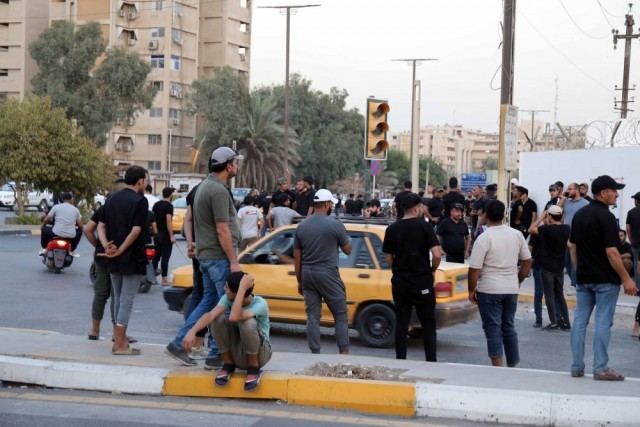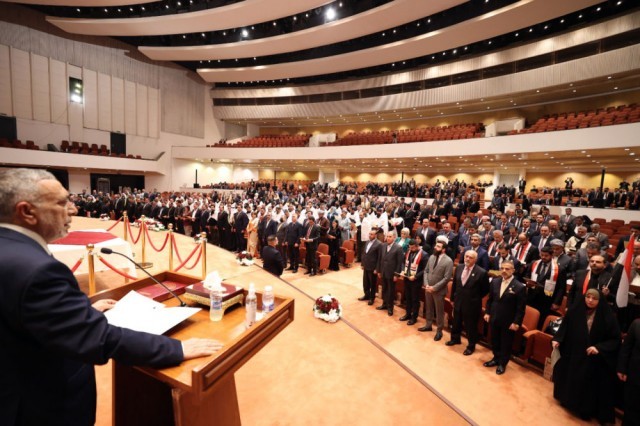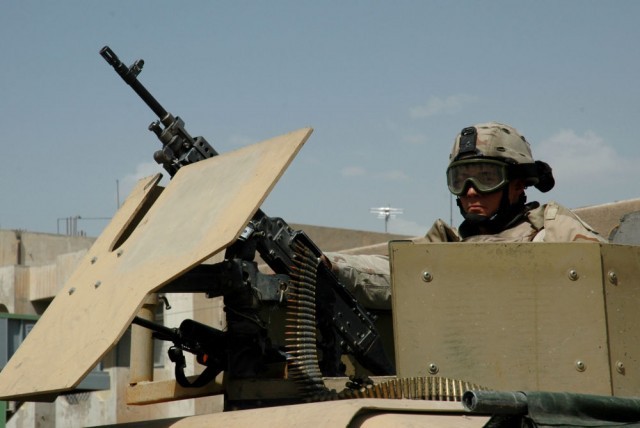What is the root cause of the Iraq chaos
Author:Xinhua News Agency Time:2022.08.31
Xinhua News Agency, Baghdad, August 31 (Reporter Fan Shuai, Dong Yalei) Iraqi Shiite religious leader Sader delivered a TV speech on the afternoon of August 30, asking all supporters who broke into the Baghda "Green Area" to withdraw within 60 minutes. Subsequently, the Iraqi joint action headquarters issued a statement announced that the national curfew was dismissed.
The bloody conflict broke out on August 29 caused major casualties. Analysts pointed out that the power competition between different political factions in Iraq is the direct reason for the upgrading of the tension, and the root cause of the chaos is the mandatory political transformation of the local area after the United States invaded Iraq in 2003.
Bleeding conflict
The direct fuse of the bleeding conflict in this round is a statement of Sadel on August 29. He wrote on the social media that day that he decided to withdraw from politics, and his leadership "Sader Movement" related agencies will also be closed.
After the release of this statement, thousands of angry Sader supporters pushed the barricades of Baghdad's "Green Area", forced the government building, including the Republic's Palace, and had a bloody conflict with the security forces. A conflict of militia armed forces that support and oppose Sader. Faced with the chaos, the Iraqi joint action headquarters announced the implementation of the national curfew from 7 pm local time on the 29th.

On August 29th, supporters of Shidel, the religious leader of Sader, the capital of Iraq, gathered at the entrance of the "Green Area" in the Iraqi capital. Xinhua News Agency (Photo by Harryler Darwood)
An official who did not want to disclose the name of the Iraqi military told Xinhua News Agency that from August 29th to 30th, the protests that occurred in Baghdad and the conflict caused by it had killed 22 people and injured more than 200.
This round of conflicts is the climax of political protests that last month. On July 27th and 30th, Sader supporters broke into the Iraqi National Assembly twice, causing parliament to stop. For the past month, this wave of protests has spread to many provinces in Iraq.
The turbulent situation in Iraq has aroused widespread attention from the international community. International organizations including the United Nations and the National Alliance of Arabia have expressed their concerns several times, calling on Iraqi factions to "stop violence", "dialogue", and "restore government operations". But these calls failed to stop the tension from further upgrading.
Party battle
The wave of protests in Iraq originated from a political deadlock for more than half a year. In October last year, Iraq held a new national parliament election, and the Federal Supreme Court approved the final result of the election at the end of the same year. After the first meeting of the new National Parliament was held in January this year, the new president should be selected within 30 days. Subsequently, the new president should assign candidates for the largest party group of the parliament as the new Prime Minister and nominate the cabinet candidates within 30 days. However, due to the serious differences within the main political factions of Shiites and the internal differences of the Kurdish camp, the new president has been unable to produce, and the establishment of the new government is also far away.

On January 9, parliamentarians attended the first meeting of the new National Parliament in Baghdad, the capital of Iraq. Xinhua News Agency (Iraqi National Assembly)
Among the total 329 seats in the new National Assembly, the "Sader Movement" led by Sader won 73 seats and became the largest party of the parliament. Under the corners of all parties, the "Sader Movement" failed to win enough support for members. The number of members who attended the presidential election voting meeting could not reach the number of legal persons, which caused the new president to be difficult to produce, and the cabinet could not talk about it.
Because of the failure to form a majority of governments, the "Sader Movement" member of the "Sader Movement" resigned collectively on June 12 this year. The new prime minister who intentionally elected Maliki was opposed by Sader. Sader has repeatedly demoded the parliament in order to re -elected, but this demand was opposed by the Maliki camp. This has been a demonstration in Iraq since the end of July since the end of July, and then the bleeding conflict broke out.
Analysts believe that, given that the differences between the current conflict are still serious, Iraq is unlikely to break the political deadlock in the short term. Jordan International Issue Observer Amir Subale said that the street struggle of Sader's supporters may be imitated by other political forces, which leads to new social conflicts and endangers social stability.
Real scourge
On the surface, the conflict between Iraq's protests and bleeding conflicts was caused by the party fighting. Real root cause.
In 2003, the United States invaded Iraq and destroyed the original political ecology of the Middle East country. Since then, under the leadership of the United States, Iraq has established a set of political decentralization system based on quota, that is, the president is Kurds, and the Prime Minister and Speaker are held by Shiites and Sunni.

On April 30, 2005, a U.S. soldier in Iraq was alert on the streets of Baghdad, the capital of Iraq. Xinhua News Agency reporter Shen Hong
Iraqi political analysts Ali Musa pointed out that this system is based on the separation of sectarian and ethnic groups, and eventually leads to the split of Iraqi society and frequent conflicts, and people's livelihood is difficult to improve. The United States was "not the construction plan at all, but the 'destruction' plan."
Yahil Jabri, a scholar of the Iraqi Think Tank's "School of Political and Governance", said that the United States did not bring reliable democracy to Iraq as it claims. On the contrary, the political system it brought failed to deal with various problems. It turns out that the United States eventually brought to Iraq.
- END -
After the "national bankruptcy", how do people live in Sri Lanka?

[Global Times Reporter Wang Jue, a reporter in Sri Lanka] The country has bankrupt...
Japan's "price increase" causes school headaches, British media: there are schools constantly adjusting recipes to avoid overruns
Recently, inflation has set off a rare price increase in Japan, and many schools have racked their brains in order to control the cost of dining.Reuters reported on the 6th that the nutritionist of